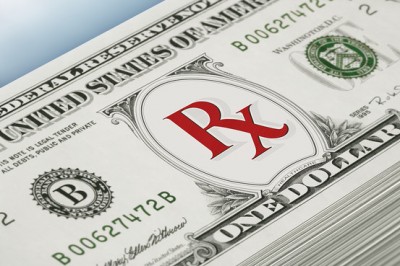Criminal Health Care Industry: US Government Exempts New Health Exchanges from Anti-Fraud Standards

As the New York Times wrote November 4, “The surprise decision, disclosed last week, exempts subsidized health insurance from a law that bans rebates, kickbacks, bribes and certain other financial arrangements in federal health programs, stripping law enforcement of a powerful tool used to fight fraud in other health care programs, like Medicare.”
The Wall Street Journal pointed out that the anti-kickback rules “went into force in 1991 and broadly bar companies from making payments to beneficiaries or other firms to induce business paid for by Medicare and other federal programs. That could range from paying rebates to Medicare beneficiaries for buying specific drugs to paying physicians to refer their patients to a specific imaging facility.”
Sebelius’s letter was a reply to an August 6 inquiry from Rep. Jim McDermott, Democrat from Washington, asking whether the government’s role in subsidizing individuals to purchase health insurance in the exchanges meant that the latter “qualify as federal health programs.”
The HHS secretary responded that her department did not consider the new programs to be such, a conclusion “based upon a careful review of the definition of ‘Federal health care program’ and an assessment of each program” of the Affordable Care Act “and consultation with the Department of Justice.”
Permit us to be skeptical.
When is a “federal health care plan” not a “federal health care plan”? When it stands in the way of certain giant corporations, already awash in profits, raking in even more.
Contrary to Sebelius’s claim, it is quite likely, as certain commentators have suggested, that the decision to exempt the ACA was made in 2009 as part of the deal reached with the pharmaceutical giants ensuring their support for Obama’s health care “reform.”
The exemption is important to these latter firms in particular. As the Wall Street Journal noted November 3, the ruling is a “significant win” for the leading drug makers.
The pharmaceutical firms have been engaged in a campaign against lower-cost generic drugs for decades. One of the means they have hit upon to advance that effort is the issuance of prescription drug coupons handed out to consumers. The coupons temptingly subsidize co-pays on expensive brand-name drugs and steer patients away from therapeutically equivalent generic drugs.
A June 2012 article in the Journal of the American Medical Association(JAMA) reported, for example, that Pfizer subsidizes the average co-pay for the anti-cholesterol drug Lipitor, decreasing its cost from $30 a month to $4. The generic equivalent simvastatin costs $10. As Kaiser Health News summarized the situation: “It’s a great deal for the patient, but not the insurer. According to the JAMA article, the insurer pays $18 a month for simvastatin and $137 a month for Lipitor,” more than seven times the cost. Of course, this “great deal” turns out to be the opposite, when the insurer passes on this additional cost to the consumer in the form of increased premiums.
In a useful interview conducted in September by RxObserver.com, Washington lawyer Kevin G. McAnaney, former chief of the Industry Guidance Branch, Office of Counsel to the HHS Inspector General, explains how a co-pay coupon comes within the anti-kickback statute:
“A copayment subsidy by a health care entity, whether by actual payment of the copayment or by waiving the copayment, is a classic kickback scheme: the subsidy is a payment to the enrollee to use the entity’s product or service. The federal government has repeatedly stated that Medicare copayment subsidies (other than those based on financial hardship) can violate the anti-kickback statute.” Violation of the statute is a felony punishable by up to five years in prison.
(McAnaney, incidentally, assumed in September that the ACA would be included in the anti-fraud regulations, observing that “The term ‘federal health care program’ is defined in the anti-kickback statute and would appear to cover the subsidized insurance plans in the exchanges.”)
The government’s definition of the drug coupons, when it comes to Medicare and other federal health care plans, as a form of fraud or bribery, and their resulting ban, costs the pharmaceutical companies billions of dollars a year. And it only stands to reason that they would apply considerable pressure on the Obama administration to exempt the plans and programs under ACA, where a new pool of tens of millions of consumers is involved, from such regulations. And not without success, as Sebelius’s decision indicates.
As noted above, the Wall Street Journal reported the happiness of the pharmaceutical firms at the news of Sebelius’s letter: “Drug makers had been anxiously awaiting word whether they could extend their copayment programs. GlaxoSmithKline PLC … said the ruling ‘appears to be good news for patients, and may provide important assistance for those who need help affording medicines under exchange plans.’ The Pharmaceutical Research and Manufacturers of America, the industry’s trade group, said it welcomed the HHS’s determination.” The headline of one Journal piece was relatively candid, “Kickbacks From Drug Makers Given All-Clear on Health Exchanges.”
Sebelius’s letter provides further confirmation of the fact that the ACA has nothing to do with improving the health care system or providing decent care for the uninsured. It is a measure aimed at lowering costs on governments and corporations, on the one hand, and funneling billions of dollars in profits to pharmaceutical firms and other major companies, on the other.
The decision to exempt the exchanges brought into being by the ACA from the anti-corruption rules is more telling than Sebelius can possibly realize. It points a finger at the essentially criminal character of the for-profit health care industry in America.



No comments:
Post a Comment